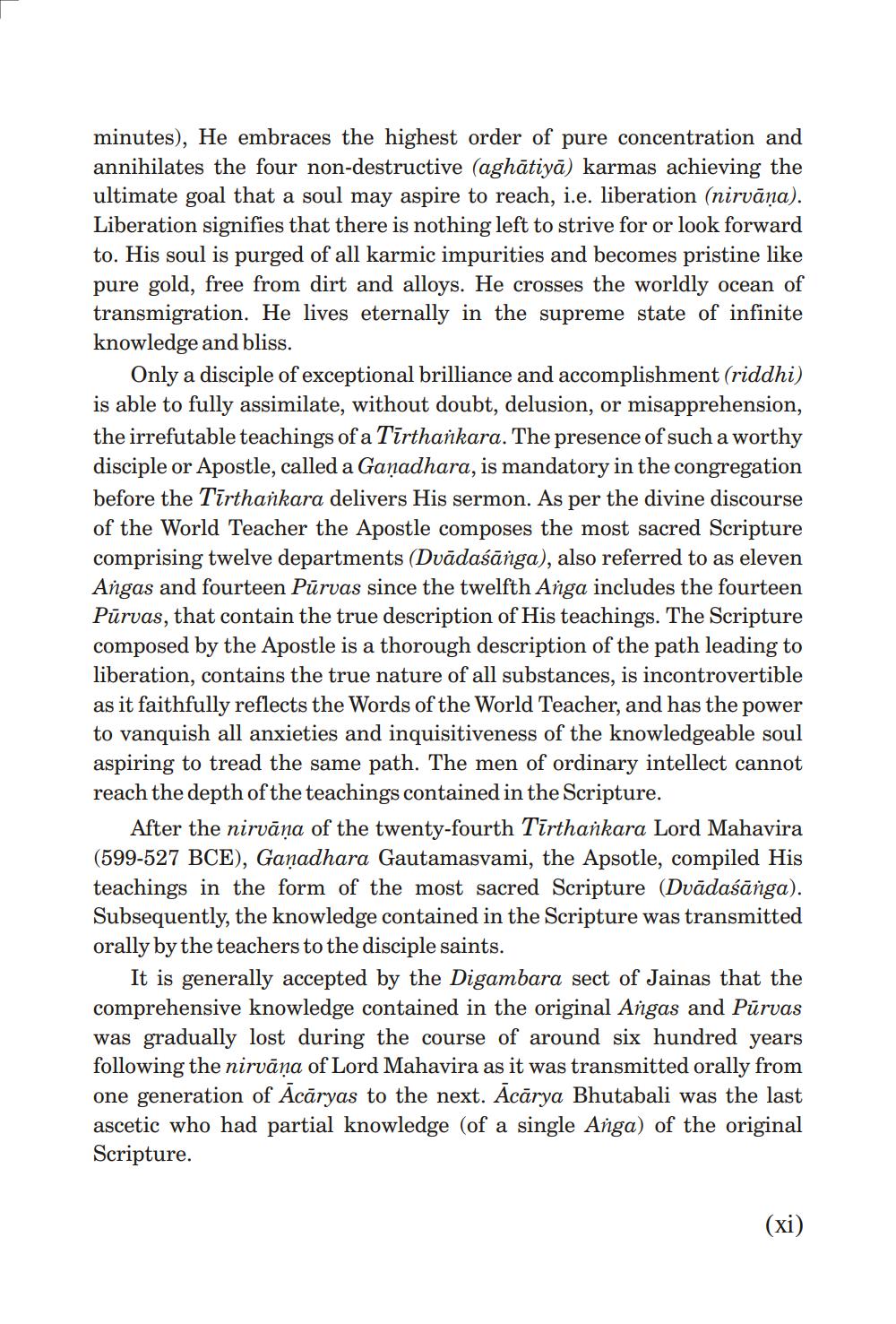________________
minutes), He embraces the highest order of pure concentration and annihilates the four non-destructive (aghātiyā) karmas achieving the ultimate goal that a soul may aspire to reach, i.e. liberation (nirvāṇa). Liberation signifies that there is nothing left to strive for or look forward to. His soul is purged of all karmic impurities and becomes pristine like pure gold, free from dirt and alloys. He crosses the worldly ocean of transmigration. He lives eternally in the supreme state of infinite knowledge and bliss.
Only a disciple of exceptional brilliance and accomplishment (riddhi) is able to fully assimilate, without doubt, delusion, or misapprehension, the irrefutable teachings of a Tīrthankara. The presence of such a worthy disciple or Apostle, called a Ganadhara, is mandatory in the congregation before the Tirthankara delivers His sermon. As per the divine discourse of the World Teacher the Apostle composes the most sacred Scripture comprising twelve departments (Dvādaśānga), also referred to as eleven Angas and fourteen Purvas since the twelfth Anga includes the fourteen Pūrvas, that contain the true description of His teachings. The Scripture composed by the Apostle is a thorough description of the path leading to liberation, contains the true nature of all substances, is incontrovertible as it faithfully reflects the Words of the World Teacher, and has the power to vanquish all anxieties and inquisitiveness of the knowledgeable soul aspiring to tread the same path. The men of ordinary intellect cannot reach the depth of the teachings contained in the Scripture.
After the nirvāṇa of the twenty-fourth Tirthankara Lord Mahavira (599-527 BCE), Ganadhara Gautamasvami, the Apsotle, compiled His teachings in the form of the most sacred Scripture (Dvādaśānga). Subsequently, the knowledge contained in the Scripture was transmitted orally by the teachers to the disciple saints.
It is generally accepted by the Digambara sect of Jainas that the comprehensive knowledge contained in the original Angas and Pūrvas was gradually lost during the course of around six hundred years following the nirvana of Lord Mahavira as it was transmitted orally from one generation of Ācāryas to the next. Acārya Bhutabali was the last ascetic who had partial knowledge (of a single Anga) of the original Scripture.
(xi)




